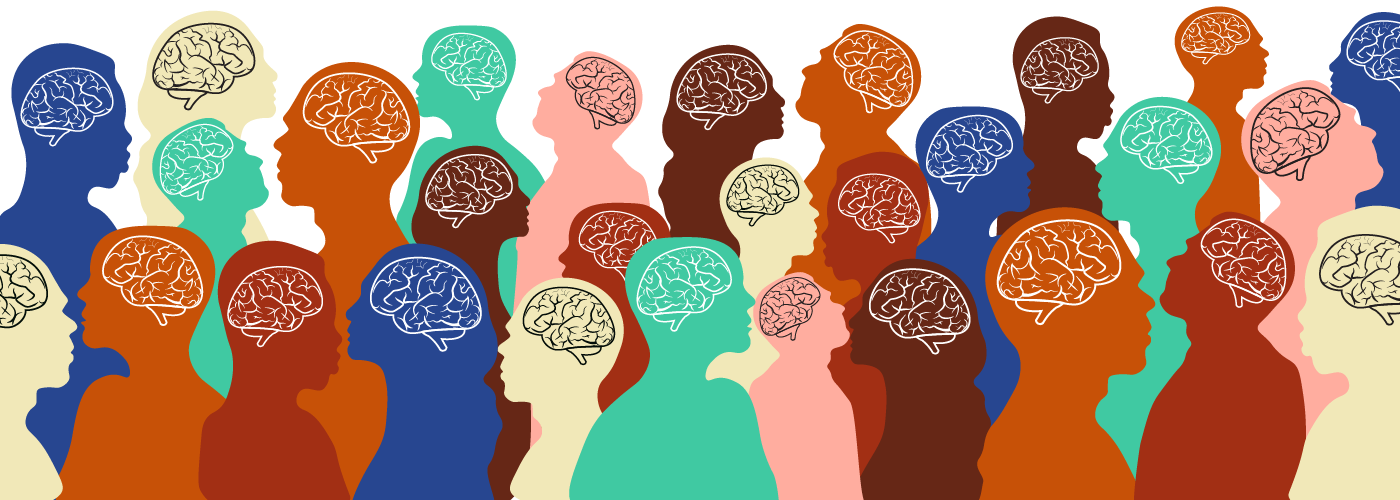Autism and a Multicultural World
April 30, 2024
Welcome back to week 9 (I can’t believe it’s been nine weeks already – I guess time flies when you’re having fun)! Who’s ready to continue venturing further down the spiral of the non-scientific? I, for one, definitely am. Now, if you haven’t already deduced this from the title, today we’ll be delving into perspectives on Autism Spectrum Disorder from the various (non-western) cultures of the world, or in other words…the multiculturalist perspective.

Cultural context has a significant effect on the implications and interpretations of an autism diagnosis. There are differential effects of culture on social acceptance and the understanding and provision of services for autistic individuals; certain behaviors exhibited by individuals with autism may also have differing cultural interpretations.
For instance, while the tendency of autistic people to not make direct eye contact with parents/caregivers may be viewed as unusual in Western cultures, it may be interpreted as polite and respectful in certain Eastern cultures, such as in China and South Korea. On the other hand, poor communication, a notable characteristic exhibited by those with the disorder, is likely to be problematic in all cultures.
Why does this matter?
Studies have consistently highlighted the need for greater cross-cultural work/research in order to gain a more in-depth understanding of Autism Spectrum Disorder as a whole. Accordingly, a 2013 review on Korean culture and autism argued that culturally informed research on autism is vital for increasing awareness of the importance of early intervention and the need for educational and psychological services in countries like South Korea, a country in which autism can be stigmatized and left undiagnosed or misdiagnosed.
Another 2012 paper proposed that cross-cultural community-based research studies or studies of subcultures within a single community can advance knowledge of interactions among genetic, environmental and cultural factors on the expression of autism. If it is possible to adequately ascertain whether there are real prevalence differences between cultures or real differences in severity, this could lead to the identification of potentially protective environmental factors.
Cultural Perspectives
Studies conducted in non-Western cultures, such as in India and Japan, have indicated a significant time lag between the age of initial parental concern and age of autism diagnosis; a study conducted with parents of autistic children in India found a wide age range at which a diagnosis was first made (15 months to 228 months), indicating the likelihood that a high proportion of individuals with autism in the country remain undiagnosed.

Furthermore, a 2012 paper on autism research in South Korea and South Africa, reported that autism is underdiagnosed in the two countries and contended that this could partially be the result of parents engaging in less help-seeking behavior than that which occurs in other cultures. Similarly, a 2013 study reported South Korean mothers’ resistance to accept a diagnosis of autism for their child. Essentially, within certain communities, perceived social stigma and fear may be great enough to discourage any form of disclosure of a child’s special needs to health professionals. This constitutes a problem as if parents are not willing to seek or disclose a diagnosis of autism then there is little pressure on the government or private sector to build the necessary services for these autistic individuals.
This notion was echoed by a 2020 qualitative study under the New York City (NYC) Korean Community Autism Project, which confirmed that discomfort, stigma, and discrimination are prevailing community attitudes towards autism and developmental disorders in the Korean-American community. These community beliefs in turn affect families’ and professionals’ understanding of autism and their care for children diagnosed with the disorder.

Perceived stigma remains prevalent in a variety of other global cultures as well. Mak and Kwok (2010) reported that in Hong Kong parents often feel there is a family stigma if a child is diagnosed with autism, while the internalization of stigma within families who had a child with autism was also reported to be severe. Additionally, Asian/Pacific Islander and African American parents were less likely than Caucasian parents to agree with teachers that their child’s behavior was indicative of an underlying disorder, indicating a lack of acceptance of a label of developmental disorder for the child.
In Conclusion…
Awareness of autism within the health profession is generally high in Western cultures, with autism research heavily skewed towards western high-income countries, as stated by a 2023 paper on a conceptual framework for understanding the cultural and contextual factors on autism worldwide. Culturally appropriate screening and diagnostic instruments for autism are also lacking in most low and middle income settings where the majority of the global autism population resides.
Ultimately, there is a need for greater autism research to be conducted in non-western cultures, as further research will lead to improved understanding of the universality of autism, the causes, and how to best improve the outcomes for individuals affected.
“Strength lies in differences, not in similarities.” – Stephen R. Covey

Leave a Reply
You must be logged in to post a comment.